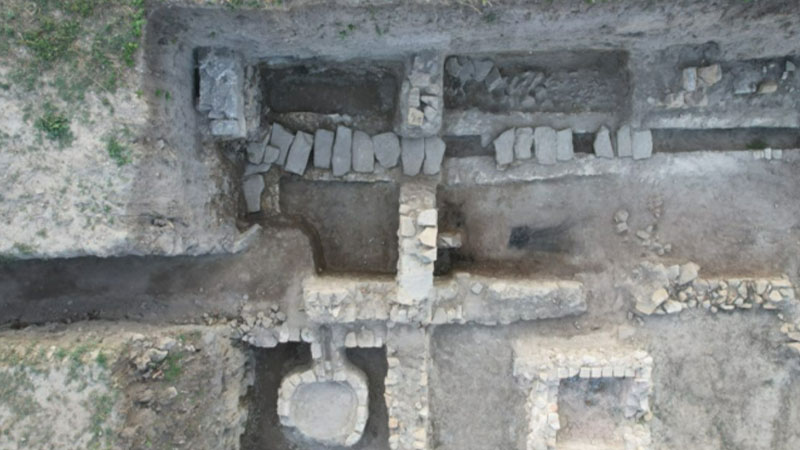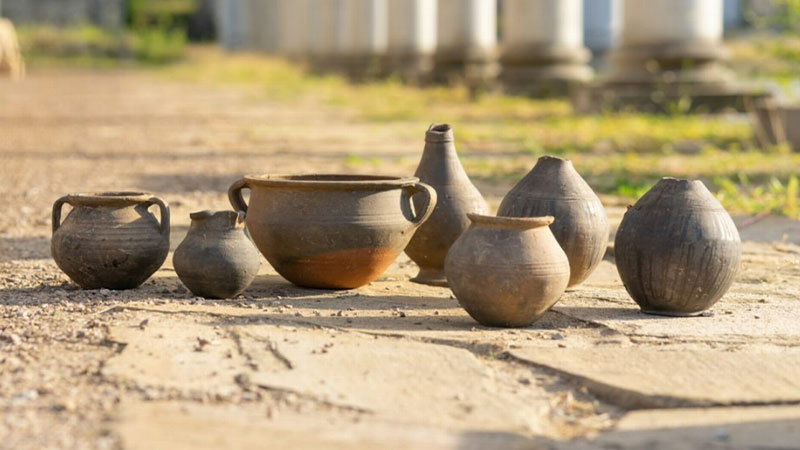Thanks to TikTok — and a new discovery in eastern Europe — it’s been a big week for the Roman Empire.
While excavating the ruins of Novae, an ancient Roman military outpost in modern-day Bulgaria, Polish scientists uncovered what was likely a vital asset to the soldiers posted there: a refrigerator containing the remains of a full meal and wine to wash it down with.

The discovery was announced by lead archaeologist and University of Warsaw antiquities professor Piotr Dyczek in Science in Poland, a public information service dedicated to sharing information on Polish science. According to Dyczek, the ancient refrigerator was found directly next to lead and ceramic water pipes, and was constructed with additional cooling capacities.
Made with ceramic plates, the food storage unit was found to contain the remnants of what would have been a typical meal at the outpost, including bowls, fragments of animal bone scaps, and even some wine still sitting in its ancient Roman drinking vessels. While the age of the refrigerator and the food inside have yet to be identified, it’s possible the findings could date as far back as the 1st century AD.
Situated along the current border of Bulgaria and Romania on the southern bank of the Danube river, Novae was constructed in the 1st century to serve as a defensive fortress along the border of the Roman Empire on the southern Danube river. The base was used until the 5th century to house Italian military recruits, at which point it became the seat of a bishop.

This excavation also unearthed the remains of the camp’s very first permanent-stationed Roman troops, a 4th century furnace, and a rare set of ceramic wine vessels.


